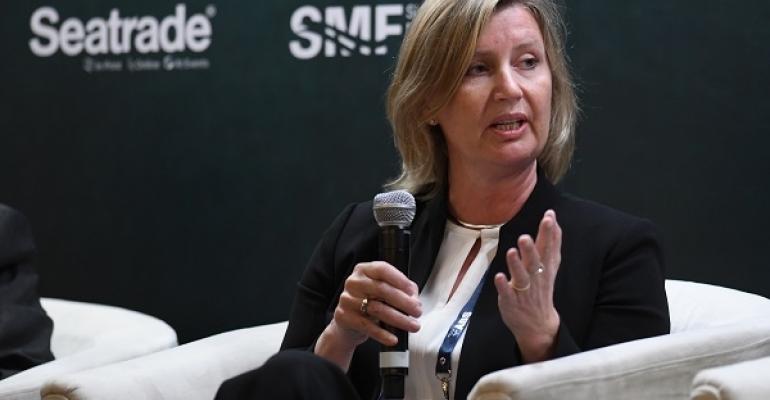Having said that, HFW partner Paul Aston noted that there has been speculative building of FSRUs and the recent advent of spot trading of FSRUs is “quite incredible”, given that the LNG business had previously been solely based on greenfield sites and long term contracts.
He noted that it was interesting to see how traditional independent owners such as BW Group, Golar LNG and Excelerate Energy among others, albeit with a deep knowledge of the gas markets, were prepared to go into the market in a drive to control all the elements of the market.
In addition, “you’re now seeing new players who want to control more than just the shipping, Aston said, suggesting that in this trend there were similarities with the way the big lines such as Maersk also wanted to control not only the ships but the containers and the terminals as well.
He pointed to companies such as Nakilat and Adnoc. “They’ve got the molecules, the FSRUs and they’ve also got the financial clout,” Aston said.
Read all the news from Singapore Maritime Week on our dedicated Live From Singapore Maritime Week 2018 page
BW LNG, who has two FSRUs operating, emphasised that FSRUs are a niche market. Md Yngvil Eriksson Asheim said: “It’s a very good tool to have in the tool box but it’s not the answer to every need.”
She suggested that “I don’t think you’re going to see 500 FSRUs in five to ten years but I think it’s here to stay and there will be a need for it.” In fact, with an increasing share of LNG-to-power projects in its pipeline, they should be seen as part of a total value chain, she suggested.
The FSRU market like the LNG carrier market has changed significantly and that will change the technical demands as well, said ABS global marine vp Peter Fitzpatrick.
While big import terminals are being planned, FSRUs are good, quick short term solutions, Aston said. Their flexibility, relative lack of capex and ability to be traded again are big advantages in getting financing, he added.
“I think that there’s room for one to two FSRU projects a year going forward but not more than that,” concluded Poten & Partners LNG shipping and product broker Rolv Stokkmo, adding that “some of the sexiness of FSRUs has disappeared and rates have come down quite significantly”.
Copyright © 2024. All rights reserved. Seatrade, a trading name of Informa Markets (UK) Limited. Add Seatrade Maritime News to your Google News feed.



